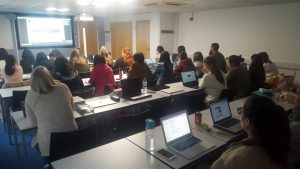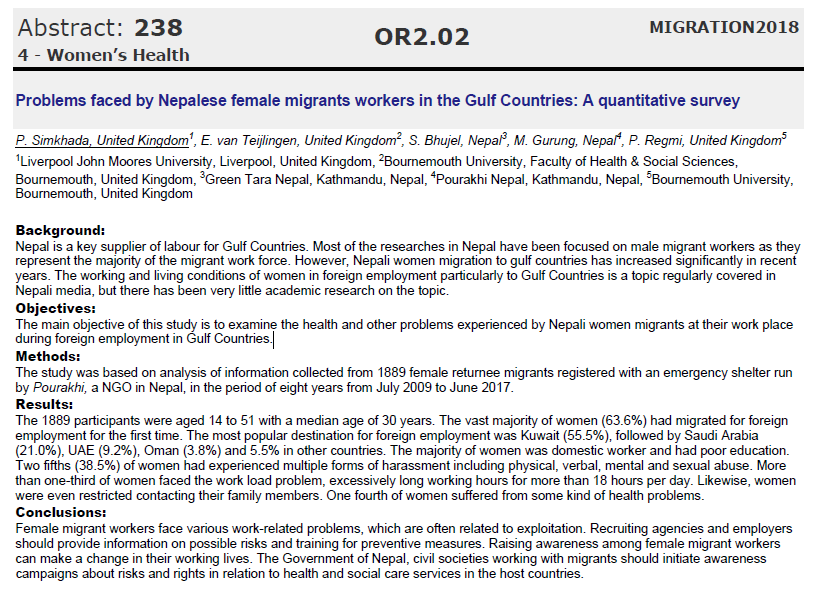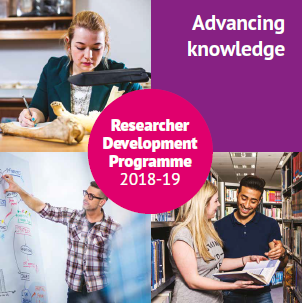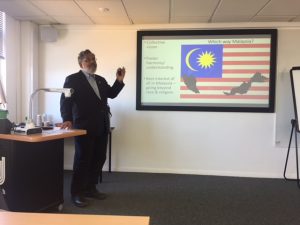Conservative Party Conference
The Conference ended with the PM’s speech, in which she declared the end of austerity and tried to fight back on Brexit. This came after a predictably colourful speech from Boris Johnson calling for the party to be more positive – and #chuckchequers. Neither talked about HE.
Education was on the agenda at the conference, though. Damien Hinds gave a speech mainly focusing on schools. He listed three key imperatives (all Ps):
- Progress – “each generation should have better opportunities than the last and every year we need to raise our sights higher and we need to reach wider”
- The prospects and prosperity of the country – productivity depends on education of this generation
- Preparedness – being ready for an uncertain world. He mentioned global trade and technological change
And to deal with these challenges, he said that the plan was to focus on:
- Academic standards (and there is an ongoing row about his statistics)
- Basic essential skills (32 primary schools and 21 colleges to be centres of excellence for early literacy and post 16 Maths)
- Behaviour management (£10m to support best practice in this area)
- And of course, vocational and technical education (and announced a £38m capital pot for investment in colleges delivering T-levels)
- Careers advice – doubling the number of trained careers leaders in schools
- Reviewing level 4 and level 5 qualifications that are the direct alternative to university (this is not new, see below)
He also talked about character, workplace skills and extra-curricular activities.
- “..we need to move forwards with our reforms. We need to ensure that the vocational and the technical, are absolutely on a par with the academic. We need to make sure that we extend our reforms in all regions, in all parts of the country. That all parts of our society have equal opportunity, that everywhere we see raised expectations and raised aspirations, and when that happens, then we will be able to say, this is a world class education for everyone.”
Level 4 and 5 qualifications have been discussed a lot recently – see the August report by Professor Dave Phoenix, VC of South Bank University has written for HEPI “Filling in the biggest skills gap: Increasing learning at Levels 4 and 5”.
The DfE are conducting a review of classroom-based, level 4 & 5 technical education launched in October 2017 (interim findings here) which will inform the ongoing Review of Post-18 Education.
Industrial Strategy – Creative Industries
A new £8 million funding competition will enable virtual, augmented and mixed reality experiences – also known as immersive content – to be created faster and more efficiently by UK content creators. The competition is part of the Industrial Strategy Challenge Fund’s audience of the future programme. Up to £33 million is available to develop new products and services that exploit immersive technologies. Funding is provided by UK Research and Innovation through Innovate UK.
Immigration
Also while the Conservative Party Conference was going on, announcements were made about future immigration rules post Brexit.
From Dods: a White Paper outlining how the system will work to be published in the autumn, ahead of legislation next year. The proposals largely mirror the recommendations of the Migration Advisory Committee from September, and offer no preferential treatment for EEA citizens coming to the country. Notably, there is a commitment under the new system not to cap the number of student visas. (there is currently no such cap)
Under the proposals:
- The passports of short-stay tourists and business people from all “low-risk” countries would be scanned at e-gates – currently only EU citizens can do this
- Security and criminal records checks would be carried out before visits, similar to the system of prior authorisation in the US
- Workers wanting to stay for longer periods would need a minimum salary, to “ensure they are not competing with people already in the UK”
- Successful applicants for high-skilled work would be able to bring their immediate family, but only if sponsored by their future employers
- The new system will not cap the number of student visas
Theresa May said:
- “The new skills-based system will make sure low-skilled immigration is brought down and set the UK on the path to reduce immigration to sustainable levels, as we promised. At the same time we are training up British people for the skilled jobs of the future.”
- “Two years ago, the British public voted to leave the European Union and take back control of our borders. When we leave we will bring in a new immigration system that ends freedom of movement once and for all. It will be a system that looks across the globe and attracts the people with the skills we need. Crucially it will be fair to ordinary working people. For too long people have felt they have been ignored on immigration and that politicians have not taken their concerns seriously enough.”
And meanwhile, at the conference, the Home Secretary announced a new “British values” test for those applying for UK citizenship, which will be “significantly tougher” than the current test, which he said was like a pub quiz, and would be accompanied by strengthened English language tests.
Degree apprenticeships
The Office for Students (OfS) has published new analysis of degree apprenticeships.
- Compared with other levels of apprenticeships and higher education generally there were relatively few degree apprentices in 2016-17, but the number of starts are growing. In 2016-17 there were 2,580 degree apprentices registered in higher education, of which 1,750 started their apprenticeship that year.
- The two most popular degree apprenticeships are:
-
- Chartered Manager – 34 per cent of entrants
- Digital and Technology Solutions Professional – 29 per cent of entrants.
- Most of the degree apprenticeships currently available are within the science, technology, engineering and mathematics (STEM) subject grouping. Within the arts, humanities and social sciences subject areas, the majority of degree apprentices are taking chartered management courses.
- There was a roughly equal number of young and mature entrants undertaking degree apprenticeships, with young students (entrants under 21) more likely to be going into science, technology, engineering and mathematics (STEM) apprenticeships.
- There were more males entering degree apprenticeships than females, but relative to similar higher education courses there is a slightly lower proportion of males.
- Apprenticeships at all levels had lower proportions of entrants from minority ethnic groups, than entrants to similar higher education courses.
- Apprenticeships have a lower proportion of entrants with a declared disability than entrants to higher education.
- The North West and North East of England have the highest proportion of the working age population entering degree apprenticeships, with London having the lowest density.
30 per cent of degree apprenticeship entrants come from areas underrepresented in higher education, slightly higher than the proportion entering similar full-time higher education courses (26 per cent).
Graduate Outcomes and Employability
The Office for Students (OfS), has launched its first Challenge Competition, inviting providers to develop and implement projects to identify ways of supporting the transition to highly skilled employment and improving outcomes for graduates who seek employment in their home region.
The OfS intends to support a range of projects that will deliver innovative approaches for graduates and particular student groups, to contribute to improved outcomes and local prosperity. Through this process we want to identify:
- what interventions work best in a variety of different regional and local contexts to support progression into highly skilled employment
- what interventions work best for different types of students and graduates
- findings that can continue to shape sector-wide debate and inform interventions to capitalise on graduate skills and knowledge for the benefit of individuals and for economic prosperity.
Providers with successful bids will be expected to form a network to share, discuss and disseminate key information among themselves and with the OfS, strategic partners, and the wider sector as required.
Metrics and ratings – graduate salaries
From Wonkhe: ONS has released its annual estimates of the value of the UK’s “human capital” – and if you like to promote higher education on the basis of pay premia, it’s not great news for the sector. The headline news is that back in 2004 the average premium for “first and other degrees” was 41%, but by 2017, it had reduced to 24%. The same has happened for “masters and doctorates” – where the pay premia has declined from 69% in 2004 to 48% in 2017. Although the premia for graduates is still significant, the downward trend will provide ammo to those who argue that “too many people are going to university”, ONS says that “one explanation for this could be a large increase in the proportion of the population with a university degree”.
Metrics and ratings – Learning gain
On Wonhke, David Kernohan wrote on 30th September about learning gain “Plenty ventured, but what was gained?”.
- David notes: Some projects have held final conferences and events. Others (notably two large scale national projects) either concluded early or have never been publicly spoken of. It’s a far from glorious end to an initiative that set out with a great deal of ambition – to measure “the distance travelled: the improvement in knowledge, skills, work-readiness and personal development demonstrated by students at two points in time” – a goal that would probably represent the most significant finding in the history of educational research.
The learning gain projects were expected to lead to discussions about a new TEF metric for learning gain – or at least to a set of tools and methodologies that providers would over time start to adopt to support their TEF submissions –because learning gain is an important element of the TEF, but one that it is not currently reflected in the metrics.
- So the article continues: Project after project reported issues with lack of engagement from students and staff. Why would a student complete a test or exercise that had no bearing on their degree, and that was of uncertain benefit? And why would an academic recommend such a course of action to their students while unsure of the underpinning motivation?
- And David concludes: …learning gain is measurable. But it is measurable only in terms of the way an individual student understands their own learning. Interventions like learning diaries and reflective writing can prove very useful to students making sense of their own progress. What learning gain may not be is comparable – which on the face of it makes perfect sense. In what world could we say that a student of economics has learned the same quanta of learning as a student of the piano?
And so on 2nd October, Yvonne Hawkins of the OfS responded, also on Wonkhe:
- he’s wrong to say that the programme is coming to an end – the first phase has concluded, and planning for a second phase that draws on the learning from phase one is already underway. I must also take issue with his rather eeyorish view of the wider learning gain endeavour.
So what are the next steps as set out by the OfS? They are “committed to developing a proxy measure for learning gain”. And it “will form part of a set of seven key performance measures to help us demonstrate progress against our student experience objective”. And how will they get there? There will be evaluations of the projects that did go ahead, and then there will be a conference, and recommendations to the OfS board in March 2019 about the next phase of work.
So watch this space….
Freedom of speech
Another week another article on free speech by the Minister– this time on Research Professional to coincide with the Conservative Party Conference.
- He starts with some context: a cultural shift is taking place, and diversity of thought is becoming harder to find as societal views become highly polarised between the left and the right. A culture of censorship has gradually been creeping in, and a monoculture is now emerging where some views are ‘in’ and others are clearly ‘out’. Social media has exacerbated this trend by giving rise to echo chambers that restrict opposing points of view and legitimise threatening and abusive behaviour.
- So what is the problem? In universities and colleges, we are witnessing the rise of no-platforming, safe spaces, trigger warnings and protests. These may all be well intended and have their place in fostering free speech, but they are also all too easy to be appropriated as tools to deny a voice to those who hold opinions that go against the sanctioned view.
- It’s perhaps put in rather strong terms: This is catastrophic for democratic debate and puts at risk the fundamental right to be heard that many have fought and died for.
- And the example – from 2015: I am increasingly alarmed by reports of individuals and groups preferring to support those who seek to restrict others’ right to speak than to protect the fundamental right for all to be heard. This was the case at Goldsmiths, University of London, in 2015 when the university’s Feminist Society came out in support of the university’s Islamic Society after its members aggressively disrupted a talk by Maryam Namazie, a feminist campaigner and human rights activist.
- So what next? That is why I am supporting an initiative coordinated by the Equality and Human Rights Commission to create new free speech guidance to ensure future generations are exposed, without hindrance, to the stimulating debates that lie at the very core of the university experience.
Subscribe!
To subscribe to the weekly policy update simply email policy@bournemouth.ac.uk
JANE FORSTER | SARAH CARTER
Policy Advisor Policy & Public Affairs Officer
66724 65070
Follow: @PolicyBU on Twitter | policy@bournemouth.ac.uk

 The platform will also create an online community which will engage and connect local actors, researchers, entrepreneurs, charities, etc., and allow users to exchange ideas and expertise. The ideas gathered from the Digital for Development in Africa Platform will be collated and used to shape future UKRI spending activities under the Global Challenge Research Fund. Thoughts collected on the challenges and potential for digital innovation to solve these will provide recommendations for research and innovation in these areas in order to make progress in addressing these challenges.
The platform will also create an online community which will engage and connect local actors, researchers, entrepreneurs, charities, etc., and allow users to exchange ideas and expertise. The ideas gathered from the Digital for Development in Africa Platform will be collated and used to shape future UKRI spending activities under the Global Challenge Research Fund. Thoughts collected on the challenges and potential for digital innovation to solve these will provide recommendations for research and innovation in these areas in order to make progress in addressing these challenges. h focused on examining the brand elements embedded within social media influencers’ (SMI) Instagram posts when attending (fashion) marketing events. The research identified six main brand elements encompassing 24 sub-elements, which were named in relation to the way SMIs communicate brands within marketing event attendance in a fashion context:
h focused on examining the brand elements embedded within social media influencers’ (SMI) Instagram posts when attending (fashion) marketing events. The research identified six main brand elements encompassing 24 sub-elements, which were named in relation to the way SMIs communicate brands within marketing event attendance in a fashion context:


 IT are undertaking essential maintenance to the BRIAN servers on Thursday 11th October 8am. This will involve BRIAN being unavailable to users for a short period of time.
IT are undertaking essential maintenance to the BRIAN servers on Thursday 11th October 8am. This will involve BRIAN being unavailable to users for a short period of time.







 As previously announced, RKEO will host seminar on EU funding opportunities (FG06, Talbot Campus, Fusion Building) on 10th October 2018. Sessions will be delivered by European Advisor of the UK Research Office Dr Andreas Kontogeorgos.
As previously announced, RKEO will host seminar on EU funding opportunities (FG06, Talbot Campus, Fusion Building) on 10th October 2018. Sessions will be delivered by European Advisor of the UK Research Office Dr Andreas Kontogeorgos. 11:30 – 12:00 – Brexit News, Q&A (to be continued during lunch if necessary)
11:30 – 12:00 – Brexit News, Q&A (to be continued during lunch if necessary)

















 Final Bournemouth University publication of 2025
Final Bournemouth University publication of 2025 On Christmas Day in the Morning…
On Christmas Day in the Morning… New Nepal scoping review on maternal & neonatal health
New Nepal scoping review on maternal & neonatal health Fourth INRC Symposium: From Clinical Applications to Neuro-Inspired Computation
Fourth INRC Symposium: From Clinical Applications to Neuro-Inspired Computation ECR Funding Open Call: Research Culture & Community Grant – Application Deadline Friday 12 December
ECR Funding Open Call: Research Culture & Community Grant – Application Deadline Friday 12 December MSCA Postdoctoral Fellowships 2025 Call
MSCA Postdoctoral Fellowships 2025 Call ERC Advanced Grant 2025 Webinar
ERC Advanced Grant 2025 Webinar Horizon Europe Work Programme 2025 Published
Horizon Europe Work Programme 2025 Published Horizon Europe 2025 Work Programme pre-Published
Horizon Europe 2025 Work Programme pre-Published Update on UKRO services
Update on UKRO services European research project exploring use of ‘virtual twins’ to better manage metabolic associated fatty liver disease
European research project exploring use of ‘virtual twins’ to better manage metabolic associated fatty liver disease